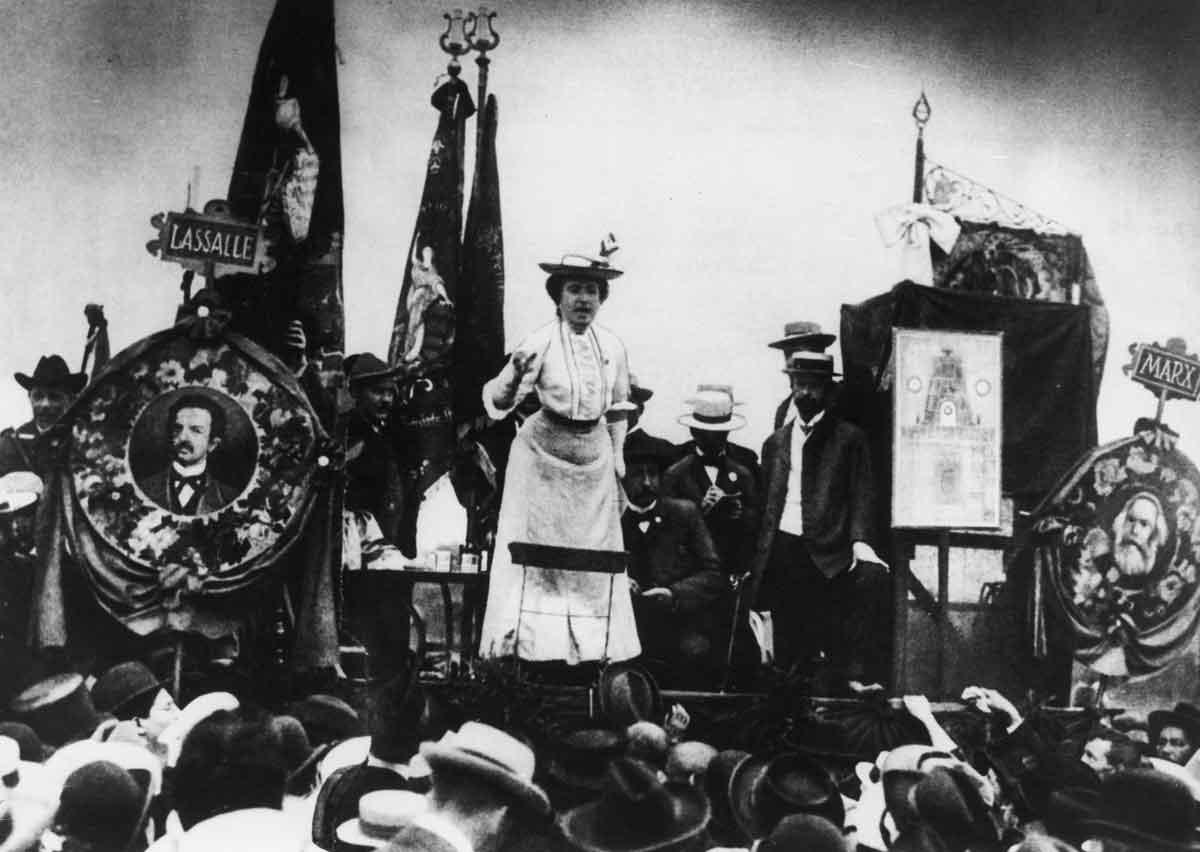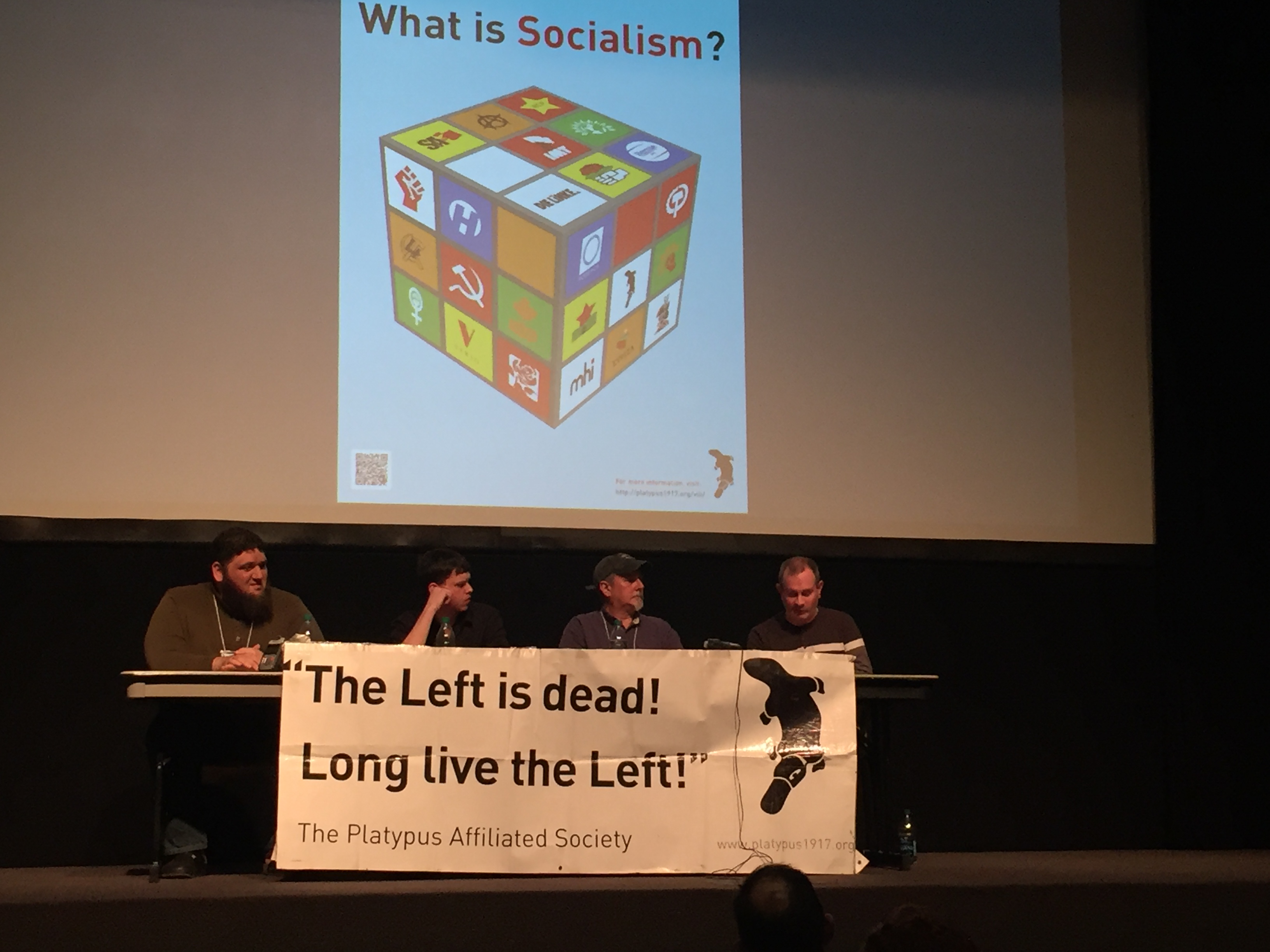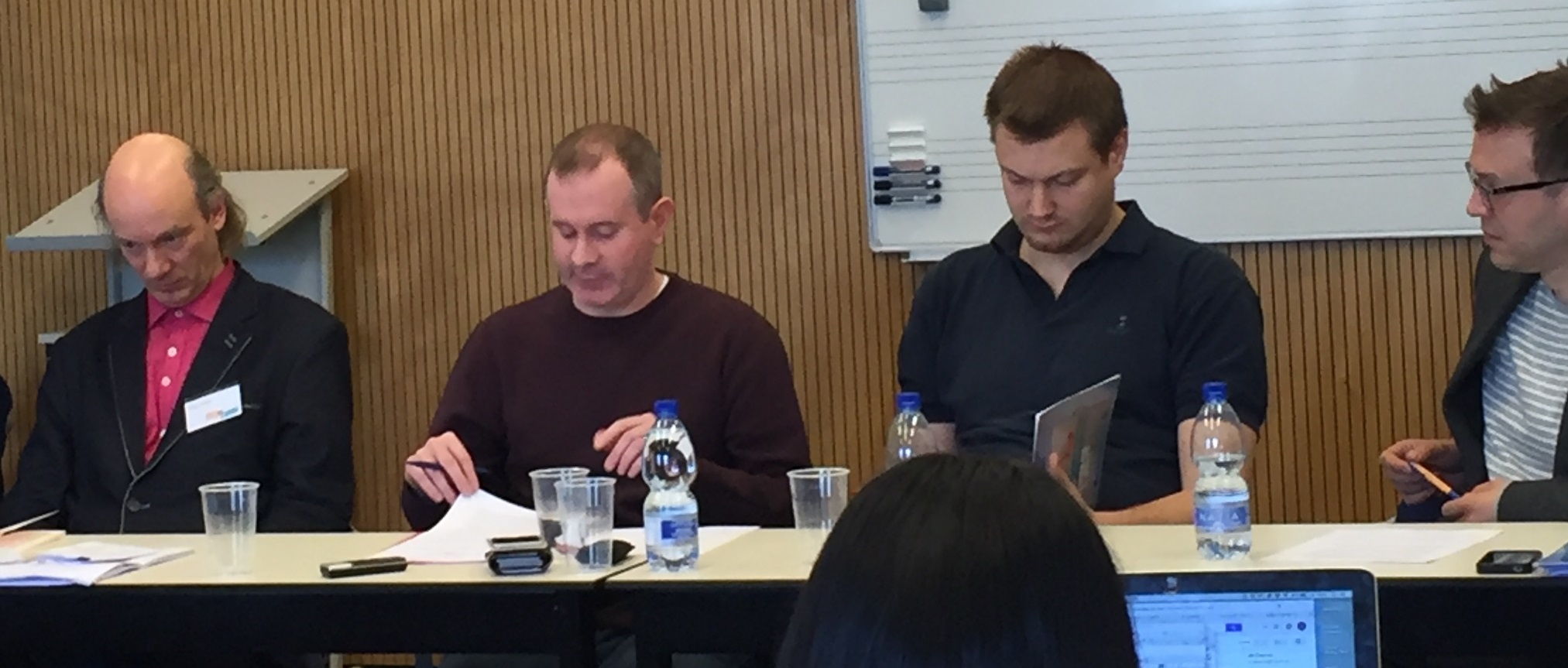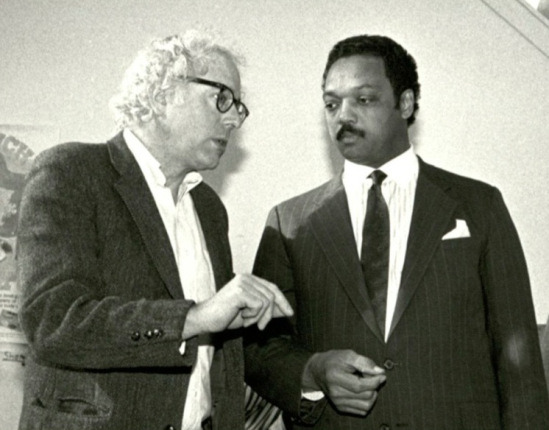Chris Cutrone
Platypus Review #86 | May 2016
IN ONE OF HER EARLIEST INTERVENTIONS in the Social-Democratic Party of Germany (SPD), participating in the notorious theoretical “Revisionist Dispute,” in which Eduard Bernstein infamously stated that “the movement is everything, the goal nothing,” the 27 year-old Rosa Luxemburg (1871–1919) clearly enunciated her Marxism: “It is the final goal alone which constitutes the spirit and the content of our socialist struggle, which turns it into a class struggle.” ((Selected Political Writings of Rosa Luxemburg, ed. Dick Howard (New York: Monthly Review Press, 1971), 38–39; also available on-line at: <https://www.marxists.org/archive/luxemburg/1898/10/04.htm>. ))
Critique of socialism
What did it mean to say that socialist politics was necessary to have “class struggle” at all? This goes to the heart of Luxemburg’s own Marxism, and to her most enduring contribution to its history: her Marxist approach to the political party for socialism—a dialectical understanding of class and party, in which Marxism itself was grasped in a critical-dialectical way. When Luxemburg accused Bernstein of being “undialectical,” this is what she meant: That the working class’s struggle for socialism was itself self-contradictory and its political party was the means through which this contradiction was expressed. There was a dialectic of means and ends, or of “movement” and “goal,” in which the dialectic of theory and practice took part: Marxism demanded its own critique. Luxemburg took the controversy of the Revisionist Dispute as an occasion for this critique.
In this, Luxemburg followed the young Karl Marx’s (1818–83) own formative dialectical critiques of socialism when he was in his 20s, from the September 1843 letter to Arnold Ruge calling for the “ruthless critique of everything existing,” to the critique of Pierre-Joseph Proudhon in the 1844 Economic and Philosophic Manuscripts and The Poverty of Philosophy (1847), as well as in The German Ideology and its famous Theses on Feuerbach (1845). Marx had written of the socialist movement that:
The internal difficulties seem to be almost greater than the external obstacles . . .
[W]e must try to help the dogmatists to clarify their propositions for themselves. Thus, communism, in particular, is a dogmatic abstraction; in which connection, however, I am not thinking of some imaginary and possible communism, but actually existing communism as taught by Cabet, Dézamy, Weitling, etc. This communism is itself only a special expression of the humanistic principle, an expression which is still infected by its antithesis—the private system. Hence the abolition of private property and communism are by no means identical, and it is not accidental but inevitable that communism has seen other socialist doctrines—such as those of Fourier, Proudhon, etc.—arising to confront it because it is itself only a special, one-sided realisation of the socialist principle . . .
Hence, nothing prevents us from making criticism of politics, participation in politics, and therefore real struggles, the starting point of our criticism, and from identifying our criticism with them. . . . We do not say to the world: Cease your struggles, they are foolish; we will give you the true slogan of struggle. We merely show the world what it is really fighting for . . .
The reform of consciousness consists only in making the world aware of its own consciousness, in awakening it out of its dream about itself, in explaining to it the meaning of its own actions.
Such formulations recurred in Marx’s Theses on Feuerbach a couple of years later:
But that the secular basis detaches itself from itself and establishes itself as an independent realm in the clouds can only be explained by the cleavages and self-contradictions within this secular basis. The latter must, therefore, in itself be both understood in its contradiction and revolutionized in practice.
For Marx, this meant that socialism was the expression of the contradiction of capitalism and as such was itself bound up in that contradiction. A proper dialectical relation of socialism with capitalism required a recognition of the dialectic within socialism itself. Marx followed Hegel in regarding contradiction as manifestation of the need for change. The “proletariat”—the working class after the Industrial Revolution—contradicted bourgeois society, not from outside but from within. As such, the contradiction of capitalism centered on the proletariat itself. This is because for Marx “capitalism” is nothing in itself, but only the crisis of bourgeois society in industrial production and hence its only meaning is the expression of the need for socialism. The very existence of the proletariat—a working class expropriated from its bourgeois property-rights in labor as a commodity—demanded socialism.

Rosa Luxemburg addresses a Stuttgart crowd in 1907. Here she is flanked by portraits of Karl Marx (right) and Ferdinand Lassalle (left), the founders of the German Socialist movement.
Lassallean party
But had the social-democratic workers’ party been from its outset a force for counterrevolution—for preserving capitalism—rather than for revolutionary transformation and the achievement of socialism? Its roots in Ferdinand Lassalle’s formulation of its purpose as the “permanent political campaign of the working class” evinced a potential contradiction between its Lassalleanism and Marxism. Marxists had not invented the social-democratic workers’ party, but rather joined it as an emergent phenomenon of the late 19th century. The social-democratic workers’ party in Germany, what became the SPD, had, through its fusion of 1875 at Gotha, attained Marxist or “revolutionary” leadership. But this had elicited Marx’s famous Critique of the Gotha Programme, to which Marx’s own followers, Wilhelm Liebknecht and August Bebel, could only shrug their shoulders at the difficulty of pleasing the “old men in London” (that is, Marx and Engels). The development of the SPD towards its conscious direction beyond mere Lassalleanism was more clearly enunciated in the SPD’s Erfurt Programme of 1891. Nonetheless the ghost of Lassalle seemed to haunt subsequent developments and was still present, according to Engels’s critique of it, in the “Marxist” Erfurt Programme itself. (Indeed, one of Rosa Luxemburg’s earliest achievements in her participation in the life of the SPD was to unearth and discover the significance of Engels’s critique of Bebel, Kautsky, and Bernstein’s Erfurt Programme.)
Luxemburg, in her critique of the SPD through regarding the party as a manifestation of contradiction, followed Marx and Engels, whose recognition was the means to advance it beyond itself. Lassalle had made the mistake of opposing the political against and derogating the economic action of the workers, rejecting labor unions, which he called merely the “vain efforts of things to behave like human beings.” (( Quoted in Georg Lukács,“The Standpoint of the Proletariat,” Part III of “Reification and the Consciousness of the Proletariat” in History and Class Consciousness: Studies in Marxist Dialectics (1923), trans. Rodney Livingstone (Cambridge, MA: MIT Press, 1971), 195. Available online at: <https://www.marxists.org/archive/lukacs/works/history/hcc07_5.htm>. )) Lassalle thus ontologized the political struggle. For Lassalle, the workers taking political power would be tantamount to the achievement of socialism; whereas for Marx this would be merely a transitional revolutionary “dictatorship of the proletariat” that would lead to socialism. Engels called it the transition from the “governing of men” to the “administration of things”—an eminently dialectical formulation, since humans are both subjects and objects of society.
Lassalle’s political ontology of socialism was complementary to the one-sided “vulgar Marxist” misapprehensions of the Revisionists who prioritized and indeed ontologized the economic over the political, reducing the social to the economic, and relating the social to the political “mechanically” and “undialectically”—neglecting the contradiction between them in an “economic determinism” that subordinated politics. Where Lassalle subordinated economics to politics in a “state socialism,” Marx regarded this rather as a state capitalism. Indeed, despite or rather due to this antinomy, the Lassalleans and the economistic reformists actually converged in their political perspectives—giving rise later to 20th century welfare-state capitalism through the governance of social-democratic parties.
Rather than taking one side over the other, Luxemburg, as a Marxist, approached this problem as a real contradiction: an antinomy and dialectic of capitalism itself that manifested in the workers’ own discontents and struggles within it, both economically and politically. For instance, Luxemburg followed Marx in recognizing that the Lassallean goal of the workers achieving a “free state” in political revolution was a self-contradiction: An unfree society gave rise to an unfree state; and it was society that needed to be emancipated from capitalism. But this was a contradiction that could be posed only by the workers’ revolutionary political action and seizing of state power—if only to “wither” it away in the transformation of society beyond capitalism. In this way the Lassallean party was not a mistake but rather a necessary stage manifesting in the history of the workers’ movement. So it needed to be properly recognized—“dialectically”—in order to avoid its one-sided pitfalls in the opposition of Revisionist, reformist economic evolutionism versus the Lassallean political revolutionism. Kautsky followed Marx in a critical endorsement of Lassalleanism in regarding the dictatorship of the proletariat as the seizing of state power by the workers’ party for socialism. Hence, Luxemburg expressed her sincere “gratitude” that the Revisionists had occasioned this critical self-recognition, by posing the question and problem of “movement” and “goal.”
Antinomy of reformism
Luxemburg made her great entrance onto the political stage of her time with the pamphlet Social Reform or Revolution? (1900). In it, Luxemburg laid out how the original contradiction of capitalism, between its chaotic social relations and its socialization of production had been further developed, exacerbated, and deepened by the development of a new contradiction, namely the growth of the workers’ movement in political organization and consciousness: Its movement for socialism was a self-contradictory expression of the contradiction of capitalism. This contrasted with Bernstein’s view that the growth and development of the workers’ movement was the overcoming of the contradiction of capitalism and the gradual “evolution” of socialism. For Bernstein, the movement for socialism was the achievement of socialism, whereas the goal of socialism was a dispensable figment, a useful enabling fiction.
For Luxemburg, however, the contradiction of the industrial forces of production against their bourgeois social relations in capitalism was recapitulated in the contradiction between the means and ends of the workers’ movement for socialism. Socialism was not built up within capitalism; but only the contradiction of capital deepened through workers’ struggle against exploitation. How so? Their demand for a share of the value of production was a bourgeois demand: the demand for the value of their labor as a commodity. However, what was achieved by increases in wages, recognition of collective bargaining rights, legal protections of workers in capitalist labor contracts and the acceptance of responsibility of the state for the conditions of labor, including the acceptance of the right to political association and democratic political participation in the state, was not the overcoming of the problem of capital—that is, the overcoming of the great divergence and social contradiction between the value of capital and wages in industrial production—but rather its exacerbation and deepening through its broadening onto society as a whole. What the workers received in reforms of capitalism was not the value of their labor-power as a commodity, which was relatively minimized by developments of industrial technique, but rather a cut of the profits of capital, whether directly through collective bargaining with the employers or indirectly through state distribution of social welfare benefits from the tax on capital. What Bernstein described optimistically as the socialization of production through such reforms was actually, according to Luxemburg, the “socialization” of the crisis of capitalist production.
The workers’ party for socialism, through its growth and development on a mass scale, thus increasingly took political responsibility for capitalism. Hence, a new contradiction developed that was focused on the party itself. Was its purpose to manage capitalism, or rather, as Luxemburg put it in her 1898 Stuttgart speech, to “play the role of the banker-lawyer who liquidates a bankrupt company”? Luxemburg posed the political task of the socialist party in Reform or Revolution? succinctly: “It is an illusion, then, to think that the proletariat can create economic power within capitalist society. It can only create political power and then transform [aufheben] capitalist property.” The proletarian socialist party was the means for creating that political power. This differed from the development of bourgeois social relations in feudalism that led to revolution:
What does it mean that the earlier classes, particularly the third estate, conquered economic power before political power? Nothing more than the historical fact that all previous class struggles must be derived from the economic fact that the rising class has at the same time created a new form of property upon which it will base its class domination.
However, according to Luxemburg, “The assertion that the proletariat, in contrast to all previous class struggles, pursues its battles, not in order to establish class domination, but to abolish all class domination is not a mere phrase.” This is because the proletariat does not develop a new form of “property” within capitalism, but rather struggles economically, socially and politically, on the basis of “bourgeois property”—on the basis of the bourgeois social relations of labor, or of labor as a commodity. What the working class’s struggle within capitalism achieves is consciousness of the need to overcome labor as a commodity, or, to transform capital from bourgeois property into social property that is no longer mediated by the exchange of labor. This is what it meant for Marx that the proletariat struggles not to “realize” but to abolish itself, or, how the proletariat goes from being a class “in itself” to becoming a class “for itself” (The Poverty of Philosophy, 1847) in its struggle for socialism.
For Luxemburg, the achievement of reforms within capitalism accomplish nothing but the greater practical and theoretical realization, or “consciousness,” of the need to abolish labor as a commodity, since the latter has been outstripped by industrial production. The further economic, social, and political reforms only dramatically increase this disparity and contradiction between the economic value of labor as a commodity and the social value of capital that must be appropriated by society as a whole.
In other words, the workers’ movement for socialism and its institution as a political party is necessary to make the otherwise chaotic, unconscious, “objective” phenomenon of the economic contradiction and crisis of wage-labor and capital into a conscious, “subjective” phenomenon of politics. As Luxemburg wrote later, in The Crisis of German Social Democracy (AKA the “Junius Pamphlet,” 1915):
Socialism is the first popular movement in world history that has set itself the goal of bringing human consciousness, and thereby free will, into play in the social actions of mankind. For this reason, Friedrich Engels designated the final victory of the socialist proletariat a leap of humanity from the animal world into the realm of freedom. This ‘leap’ is also an iron law of history bound to the thousands of seeds of a prior torment-filled and all-too-slow development. But this can never be realized until the development of complex material conditions strikes the incendiary spark of conscious will in the great masses. The victory of socialism will not descend from heaven. It can only be won by a long chain of violent tests of strength between the old and the new powers. The international proletariat under the leadership of the Social Democrats will thereby learn to try to take its history into its own hands; instead of remaining a will-less football, it will take the tiller of social life and become the pilot to the goal of its own history.
Why “violent tests of strength”? Was this mere “revolutionary” passion, as Bernstein averred? No: As Marx had observed in Das Kapital, in the struggle over the “working day,” or over the social and legal conventions for the condition of labor-time, workers and capitalists confronted each other, both with “bourgeois right” on their side. But, “Where right meets right, force will decide.” Such contests of force did not decide the issue of right in capitalism, but only channeled it in a political direction. Both capital and wage-labor retained their social rights, but the political arena in which their claims were decided shifted from civil society to the state, posing a crisis—the need for “revolution.”
1848: state and revolution
For Luxemburg, the modern state was itself merely the “product of the last revolution,” namely the political institutionalization of the condition of class struggle up to that point. The “last revolution” was that of 1848, in which the “social question” was posed as a crisis of the democratic republic. As such, the state remained both the subject and the object of revolutionary politics. Marx had conflicted with the anarchists in the First International over the issue of the need for “political” as well as “social action” in the working class’s struggle for socialism. The Revisionists such as Bernstein had, to Luxemburg’s mind, reverted to the pre-Marxian socialism of anarchism in abandoning the struggle for political power in favor of merely social action. In this, Luxemburg characterized Bernstein as having regressed (like the anarchists) to mere “liberalism.” What Bernstein like the anarchists denied was what Marx had discovered in the experience of the revolutions of 1848, namely, the necessity of the “dictatorship of the proletariat,” and hence the necessary political separation of the workers’ “social democracy” from the mere “democracy” of the bourgeois revolution, including the necessary separation from the “petit bourgeois democrats” who earned Marx’s most scathing scorn.
While liberals denied the need for such “social democracy” and found political democracy to be sufficient, anarchists separated the social from the political, treating the latter as a fetishized realm of collusion in the bourgeois state and hence capitalism. Anarchists from the first, Proudhon, had avoided the issue of political revolution and the need to take state power; whereas Marxists had recognized that the crisis of capitalism inevitably resulted in political crisis and struggle over the state: If the working class failed to do so, others would step in their place. For Marx, the need for workers’ political revolution to achieve socialism was expressed by the phenomenon of Louis Bonaparte’s election in 1848 and coup d’état in 1851, which expressed the inability of the “bourgeoisie to rule” any longer through civil society, while the proletariat was as yet politically undeveloped and thus “not ready to rule” the state. But for Marx the necessity of the “dictatorship of the proletariat” was that the “workers must rule” politically in order to overcome capitalism economically and socially.
Marx characterized Louis Bonaparte’s politics as both “petit bourgeois” and “lumpenproletarian,” finding support among the broad masses of capitalism’s discontented. But according to Marx their discontents could only reproduce capitalism since they could only at best join the working class or remain dependent on the realization of the value of its labor as a commodity. Hence, there was no possible withdrawal from the crisis of bourgeois politics and the democratic state, as by libertarians and anarchists, but the need to develop political power to overcome capitalism. For the capitalist wage-labor system with its far-reaching effects throughout society to be abolished required the political action of the wage laborers. That the “workers must rule” meant that they needed to provide political leadership to the exploited and oppressed masses. If the organized working class did not, others would provide that leadership, as Bonaparte had done in 1848 and 1851. The means for this was the political party for socialism. As Luxemburg put it in her 1898 Stuttgart speech:
[B]y final goal we must not mean . . . this or that image of the future state, but the prerequisite for any future society, namely the conquest of political power. This conception of our task is closely related to our conception of capitalist society; it is the solid ground which underlies our view that capitalist society is caught in insoluble contradictions which will ultimately necessitate an explosion, a collapse, at which point we will play the role of the banker-lawyer who liquidates a bankrupt company.
The socialist political party was for Luxemburg the means for this necessary achievement of political power. But the party was not itself the solution, but rather the necessary manifestation and concretization of the problem of political power in capitalism and indeed the problem of “society” itself.
1905: party and class
Luxemburg took the occasion of the 1905 Revolution in Russia to critique the relation of labor unions and the Social-Democratic Party of Germany (SPD) in her pamphlet on The Mass Strike, the Political Party and the Trade Unions (1906). This was a continuation of Luxemburg’s criticism of the reformist Revisionist view of the relation of the economic and political struggles of the working class for socialism, which had found its strongest support among the labor union leadership. In bringing to bear the Russian experience in Germany, Luxemburg reversed the usual assumed hierarchy of German experience over Russian “backwardness.” She also reversed the developmental order of economic and political struggles, the mistaken assumption that the economic must precede the political. The “mass” or political strike had been associated with social- and political-historical primitiveness, with pre-industrial struggles and pre-Marxian socialism, specifically anarchism and anarcho-syndicalism (especially in the Latin countries), which had prioritized economic and social action over political action. Luxemburg sought to grasp the changed historical significance of the political strike; that it had become, rather, a symptom of advanced, industrial capitalism. In the 1905 Russian Revolution, the workers had taken political action before economic action, and the labor unions had originated out of that political action, rather than the reverse.
The western Russian Empire was rapidly industrialized and showed great social unrest in the 1890s–1900s. It exhibited the most up-to-date techniques and organization in industrial production: The newest and largest factories in the world at this time were located in Russia. Luxemburg was active in the Russian Social-Democratic Labor Party (RSDLP) in the Russian part of Poland, through her own organization, the Social-Democratic Party of the Kingdom of Poland and Lithuania (SDKPiL). The 1905 Russian Revolution was precipitated by a political and not “economic” crisis: the shaking of the Tsarist state in its losing war with Japan 1904–05. This was not merely a liberal-democratic discontent with the arbitrary rule of the Russian absolutism. For Luxemburg, the Russo-Japanese War was a symptom of capitalism, and so was the resulting crisis of Tsarism in Russia triggered by this war. The political strike was, as she put it, a revolt of “bourgeois Russia,” that is, of the modern industrial capitalists and workers, against Tsarism. What had started out in the united action of the capitalists and workers striking economically against the Tsarist state for liberal-democratic political reasons, unfolded into a class struggle by the workers against the capitalists. This was due to the necessity of reorganizing social provisions during the strike, in which mass-action strike committees took over the functions of the usual operations of capitalism and indeed of the Tsarist state itself. This had necessitated the formation of workers’ own collective-action organizations. Luxemburg showed how the economic organization of the workers had developed out of the political action against Tsarism, and that the basis of this was in the necessities of advanced industrial production. In this way, the workers’ actions had developed, beyond the liberal-democratic or “bourgeois” discontents and demands, into the tasks of “proletarian socialism.” Political necessity had led to economic necessity (rather than the reverse, economic necessity leading to political necessity).
For Luxemburg, this meant that the usual assumption in Germany that the political party, the SPD, was “based” on the labor unions, was a profound mistake. The economic and social-cooperative actions of the unions were “based,” for Luxemburg, on the political task of socialism and its political party. This meant prioritizing the political action of the socialist party as the real basis or substance of the economic and other social action of the working class. It was the political goal of the dictatorship of the proletariat through socialist revolution that gave actual substance to the workers’ economic struggles, which were, for Luxemburg, merely the necessary preparatory “school of revolution.”
Luxemburg wrote her pamphlet while summering at a retreat with Lenin and other Bolsheviks in Finland. It was informed by her daily conversations with Lenin over many weeks. Lenin had previously written, in What is to be Done? (1902) (a pamphlet commissioned and agreed-upon by the Marxist faction of the RSDLP as a whole, those who later divided into Bolsheviks and Mensheviks), that economism and workerism in Russia had found support in Bernsteinian Revisionism in the SPD and the greater Second International, trying to subordinate the political struggle to economic struggle and thus to separate them. In so doing, they like the Revisionists had identified capitalist development with socialism rather than properly recognizing them as in growing contradiction. Lenin had, like Luxemburg, regarded such workerism and economism as “reformist” in the sense of separating the workers’ struggles for reform from the goal of socialism that needed to inform such struggles. Luxemburg as well as Lenin called this “liquidationism,” or the dissolving of the goal into the movement, liquidating the need for the political party for socialism. In What is to be Done? Lenin had argued for the formation of a political party for the workers’ struggle for socialism in Russia. He took as polemical opponents those who, like the Revisionists in Germany, had deprioritized the necessity of the political party, thus deprioritizing the politics of the struggle for socialism, limiting it to economic action. (( See also my essay ‘Lenin’s Liberalism’, Platypus Review 36 (June 2011). Available online at: <http://platypus1917.org/2011/06/01/lenins-liberalism/>. )) The political party had thus redeemed itself in the 1905 Revolution in Russia, showing its necessary role for the workers’ political, social, and economic action, confirming Lenin and Luxemburg’s prior arguments against economism.
Luxemburg regarded the lessons of the 1905 Revolution in Russia to be a challenge to and hence a “crisis”—a potential critical turning point—of the SPD in Germany. Continuing her prosecution of the Revisionist Dispute, Luxemburg argued for the concrete necessity of the political leadership of the party over the unions that had been demonstrated by the 1905 Revolution in Russia. By contrast, the tension and indeed contradiction between the goal of socialism and the preservation of the institutions of the workers’ movement—specifically of the labor unions’ self-interest—which might be threatened by the conservative reaction of the state against the political action of the socialist party, showed a conflict between movement and goal. The Revisionists thought that a mass political strike would merely provoke the Right into a coup d’état.
Demand for redemption
Walter Benjamin, in his draft theses “On the Concept of History” (AKA “Theses on the Philosophy of History,” 1940), cited Luxemburg in particular when describing history itself as the “demand for redemption.” Not only did Luxemburg raise this demand with her famous invocation of Marx and Engels on the crossroads in capitalism of “socialism or barbarism,” but as a historical figure she herself calls out for such redemption.
The conflict in and about the party on which Luxemburg had focused was horribly revealed later by the outbreak of war in 1914, when a terrible choice seemed posed, between the political necessity to overthrow the Kaiserreich state to prevent or stop the war, and the need to preserve the workers’ economic and social organizations in the unions and the party. The war had been the Kaiserreich’s preemptive coup d’état against the SPD. The party capitulated to this in that it facilitated and justified the unions’ assertion of their self-preservation at the cost of cooperation with the state’s war. This self-preservation—what Luxemburg excoriated as trying to “hide like a rabbit under a bush” temporarily during the war—may have been justified if these same organizations had served later to facilitate the political struggle for socialism after the Prussian Empire had been shaken by its loss in the war. But the SPD’s constraining of the workers’ struggles to preserve the state, limiting the German Revolution 1918–19 to a “democratic” one against the threat of “Bolshevism,” meant the party’s suppression of its own membership. Past developments had prepared this. The Revisionists’ prioritization of the movement and its organizations over the goal of socialism had been confirmed for what Luxemburg and Lenin had always warned against: the adaptation and liquidation of the working class’s struggles into, not a potential springboard for socialism, but rather a bulwark of capitalism; the transformation of the party from a revolutionary into a counterrevolutionary force. As Luxemburg had so eloquently put it in WWI, the SPD had become a “stinking corpse”—something which had through the stench of decomposition revealed itself to have been dead for a long time already—dead for the purposes of socialism. The party had killed itself through the Devil’s bargain of sacrificing its true political purpose for mere self-preservation.
In so doing, supposedly acting in the interests of the workers, the workers’ true interests—in socialism—were betrayed. As Luxemburg put it in the Junius Pamphlet, the failure of the SPD at the critical moment of 1914 had placed the entire history of the preceding “40 years” of the struggles by the workers—since the founding of the SPD in 1875—“in doubt.” Would this history be liquidated without redemption? This underscored Luxemburg’s warning, decades earlier, against dissolving the goal into the movement that would betray not only the goal but the movement itself. Reformist revisionism devoured itself. The only point of the party was its goal of revolution; without it, it was “nothing”—indeed worse than nothing: It became a festering obstacle. The party was for Luxemburg not only or primarily the “subject” but was also and especially the object of revolutionary struggle by the working class to achieve socialism. This is why the revolution that the party had facilitated was for Luxemburg merely the beginning and not the end of the struggle to achieve socialism. The political problem of capitalism was manifest in how the party pointed beyond itself in the revolution. But without the party, that problem could never even manifest let alone point beyond itself.
During the German Revolution—provoked by the collapse of the Kaiserreich at the end of WWI—Luxemburg split and founded the new Communist Party of Germany (KPD), joining Lenin in forming the “Third” or Communist International, in 1919: to make clear the political tasks that had been manifested and advanced but ultimately abdicated and failed by the social-democratic parties of the Second International in war and revolution. Just as Luxemburg and Lenin had always maintained that the political party for socialism was necessary to advance the contradiction and crisis of capitalism as it had developed from Marx’s time to their own, so it became necessary in crisis to split that party and found a new one. Turning the international war of capitalism into a socialist revolution meant manifesting a civil war within the workers’ movement and indeed within Marxism itself. Whereas her former comrades in the SPD recoiled from her apparent revolutionary fanaticism, and “saved” themselves and their party by betraying its goal (but ultimately faded from historical significance), Luxemburg, as a loyal party-member, sacrificed herself for the goal of socialism, redeeming her Marxism and making it profoundly necessary, thus tasking our remembrance and recovery of it today. | §
Re-published in Weekly Worker 1115 (July 14, 2016). [PDF]
Notes







